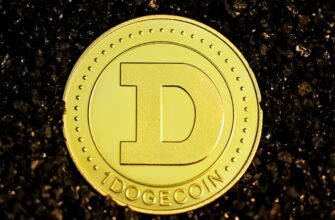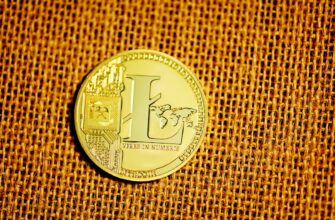- Introduction: The Convergence of Crypto and Business Education
- The Rise of Cryptocurrency in Business Education
- What is a Cryptocurrency MBA?
- Core Curriculum Breakdown
- Career Opportunities: Where Crypto MBAs Thrive
- Leading Institutions Offering Cryptocurrency MBAs
- Choosing Your Cryptocurrency MBA Program
- The Future of Cryptocurrency MBAs
- Frequently Asked Questions
Introduction: The Convergence of Crypto and Business Education
The financial landscape is undergoing a seismic shift with blockchain and cryptocurrencies reshaping industries. Enter the Cryptocurrency MBA—a specialized graduate degree merging traditional business acumen with cutting-edge digital asset expertise. This emerging qualification prepares leaders to navigate decentralized finance (DeFi), tokenomics, and Web3 innovation. As global crypto adoption accelerates, professionals equipped with both MBA rigor and blockchain fluency command unprecedented career advantages.
The Rise of Cryptocurrency in Business Education
Business schools worldwide are integrating crypto curricula due to surging market demand. Consider these developments:
- Market Growth: The global blockchain market is projected to reach $1,432 billion by 2030 (Fortune Business Insights).
- Corporate Adoption: 55% of Fortune 500 companies explore blockchain solutions (Deloitte).
- Talent Gap: Crypto/blockchain job postings grew 395% in 2021-2022 (LinkedIn).
This trifecta fuels academia’s pivot toward Cryptocurrency MBA programs, blending finance, strategy, and tech disruption.
What is a Cryptocurrency MBA?
A Cryptocurrency MBA is a Master of Business Administration with concentrated coursework in:
- Blockchain architecture and smart contracts
- Crypto asset valuation and portfolio management
- Regulatory frameworks (SEC, FATF compliance)
- Decentralized autonomous organizations (DAOs)
- Tokenomics and ICO/STO strategies
Unlike traditional MBAs, these programs emphasize hands-on crypto trading simulations, NFT marketplace analysis, and case studies on enterprises like Coinbase or Binance.
Core Curriculum Breakdown
Typical Cryptocurrency MBA courses include:
- Blockchain Foundations: Distributed ledger technology, consensus mechanisms
- Crypto Economics: Supply/demand dynamics, inflation models, staking rewards
- Digital Asset Law: Global regulations, KYC/AML protocols
- DeFi Strategy: Yield farming, liquidity pools, DEX operations
- Web3 Business Models: Metaverse commerce, play-to-earn ecosystems
Career Opportunities: Where Crypto MBAs Thrive
Graduates unlock roles across finance, tech, and consulting:
- Blockchain Project Manager: Avg. salary $120,000 (Glassdoor)
- Crypto Investment Analyst: Evaluate tokenomics for hedge funds
- DeFi Protocol Designer: Architect lending/borrowing platforms
- Corporate Crypto Strategist: Lead adoption for Fortune 500 firms
- Regulatory Compliance Officer: Navigate evolving crypto laws
Top employers include Circle, Kraken, Gemini, and blockchain divisions at JPMorgan and Fidelity.
Leading Institutions Offering Cryptocurrency MBAs
Pioneering programs include:
- MIT Sloan: MBA with Blockchain Lab & Digital Currency Initiative
- NYU Stern: Courses in Cryptocurrencies & Blockchain
- Stanford GSB: Crypto Finance and Web3 Strategy electives
- INSEAD: Blockchain for Business Certification
- University of Nicosia (Cyprus): World’s first MSc in Digital Currency
Choosing Your Cryptocurrency MBA Program
Evaluate programs using this checklist:
- Faculty Expertise: Professors with crypto industry experience
- Tech Partnerships: Collaborations with Chainalysis or ConsenSys
- Capstone Projects: Real-world crypto venture development
- Alumni Network: Connections in blockchain startups
- Cost vs. ROI: Compare tuition against average graduate salaries
The Future of Cryptocurrency MBAs
As central bank digital currencies (CBDCs) and enterprise blockchain adoption accelerate, Cryptocurrency MBA credentials will become indispensable. Expect:
- AI integration for predictive crypto analytics
- Specializations in NFT intellectual property
- Global standards for crypto accounting (FASB/IASB)
- Hybrid programs with DAO governance modules
Frequently Asked Questions
Q: Is a Cryptocurrency MBA worth the investment?
A: Absolutely. With crypto roles paying 20-50% premiums over traditional finance jobs, ROI is compelling for strategic career pivots.
Q: Can I pursue this without a tech background?
A: Yes. Programs teach blockchain fundamentals from scratch, though basic finance knowledge helps.
Q: How long do Cryptocurrency MBA programs take?
A: Typically 18-24 months full-time. Many offer part-time/online options.
Q: Are there scholarships for crypto MBAs?
A: Yes. Organizations like the Ethereum Foundation and Coinbase offer industry scholarships.
Q: Will AI make crypto MBAs obsolete?
A: Unlikely. Human judgment remains critical for regulatory navigation, ethical decisions, and strategic leadership in volatile markets.







